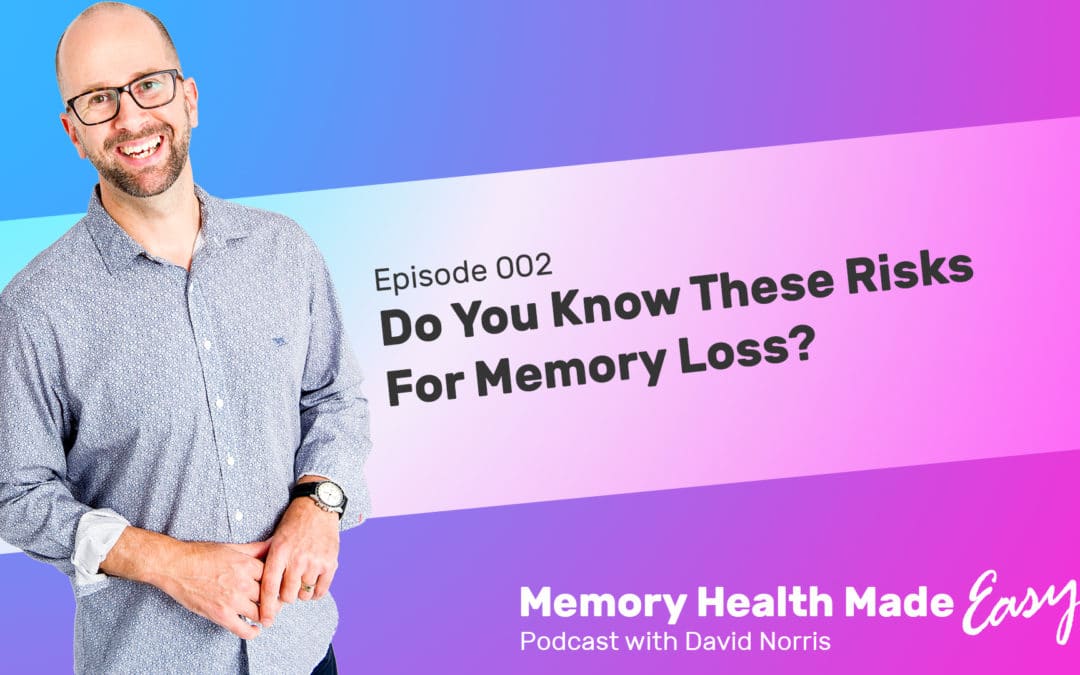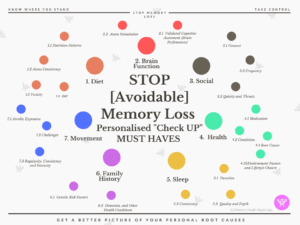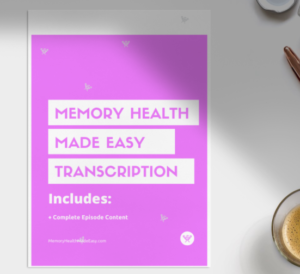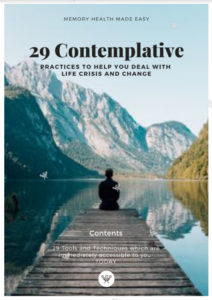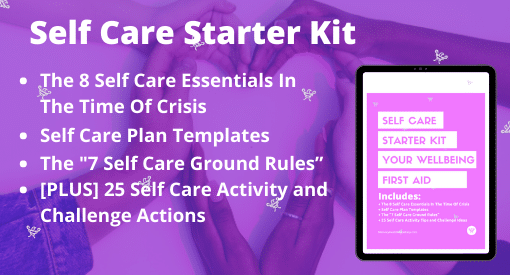iTunes | Google Play | Libsyn | Spotify | Stitcher | TuneIn Radio | YouTube | Twitter | Facebook
Bonus Material: 9 Things Your Brain Needs to Thrive Cheatsheet
As we reach a certain age, we experience changes in our ability to do things–the sudden lack of energy, the loss of sharpness, and the decrease in our performance. These changes, with the addition of our unhealthy habits, can get us into a rapid and unturnable course in our raft as we go on with our life–memory loss.
We’re back with the second episode of the Memory Health Made Easy podcast. Today’s episode is about establishing where we are at with our personal risk factors when it comes to memory loss–what are the things that we can do to prevent it early on?
Know what your risks are today and let me help you keep your memories burning bright. Subscribe to this podcast and tune in to the show for the specifics!
To Grow Your Brain Skills To Their Potential You Need These 9 Things In Your Life

About The Host
David Norris is an occupational therapist who has been in this practice for 20 years.
He has dealt with a lot of clients who seek help with their memory loss problems.
David began asking himself about how these people can get ahead of these problems.
It is then that he started teaching his clients how to improve their brain health to prevent memory loss.
David Norris is also the director and founder of Occupational Therapy Brisbane.
Do You Know These Risks For Memory Loss
What Is Dementia?
- One person every three seconds is diagnosed with dementia worldwide.
- Dementia is not the same as Alzheimer’s.
- Dementia is an umbrella term that represents severe and pronounced memory loss.
Memory Loss Assessment Tools
- If you don’t detect the changes happening within you in your 40s, it can progress to mild cognitive changes and memory health changes.
- Assessment tools indicate whether patients are at a mild cognitive impairment state or if they’re experiencing pronounced cognitive impairment.
- These tools let doctors see changes in comparison to the people of similar age groups.
What Happens To The Brain During Our 40s?
- When we are in our 40s, mild cognitive changes are six times more likely to progress to dementia.
- Research neurologist Dr Dale Bredesen explains that in our 40s, there is a build-up of amyloid-beta protein in our brain–which is like a master key in our brains.
- Over time, when we’re exposed to risk factors, it builds up and accumulates and binds to the cell walls–causing changes in behaviour.
- There are over 50 variables that contribute to the development of amyloid-beta in the brain.
- There are drug interventions present in the market, however, they only target one or two variables.
Making Sense of the 50 (plus) Memory Threats
Do you match any of these clusters?
- Cold presentation
- Hot presentation
- Sweet presentation
- Traumatic presentation
- Toxic presentation
- Trophic presentation
Understanding Your Memory Loss Personal Risk Factors
- Imagine that a shed roof protects your brain. As we move through our life, we get a few holes in the roof. That hole is different from one person to another.
- We only need to close the majority of holes to protect the state of our brain.
Factors That Influence Risk Of Memory Loss
- Exercise
- Infection
- Living space and environment
- Nutrition
- Sleep
- Hygiene
- Drugs, alcohol, and caffeine
- Trauma and stress
- Genetics
- Age
Four-Point Checklist To Reduce Your Risk For Memory Loss
- Engine check: Know your blood risk factors associated with hormone
- Genetic check: Identify your genetic risk factors. Remember in many cases it’s the genes that load the gun but lifestyle factors which pull the trigger.
- Lifestyle check: Get an idea around your lifestyle risk factors
- Cognitive check: Do a baseline of your memory health status and cognitive performance
If you have any questions, insights, or reviews, please don’t hesitate to leave a comment so we can start a discussion.
Grab a free copy of the memory health toolkit today to learn more about how you can strengthen your brain building. You can connect with me on LinkedIn or Twitter.

